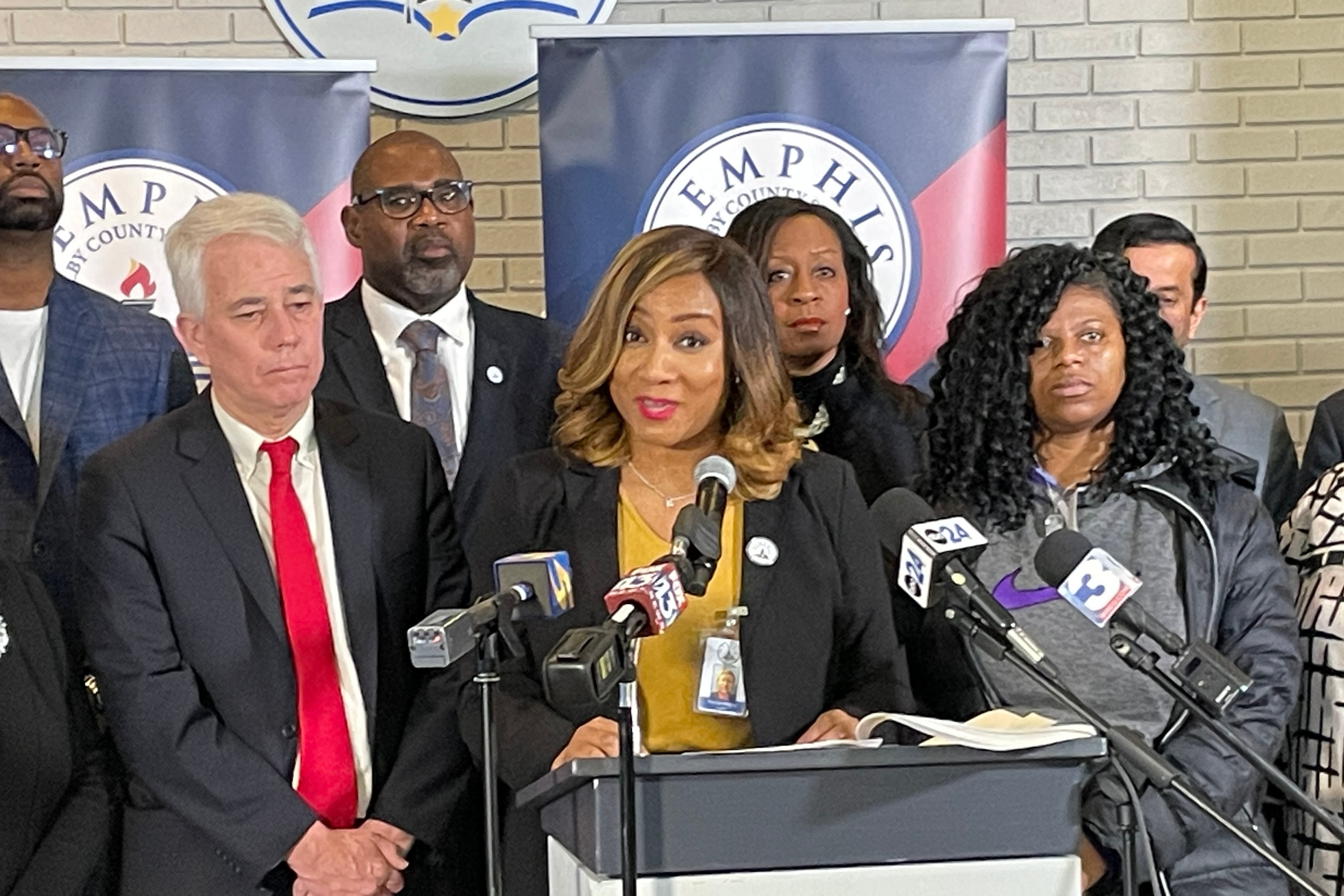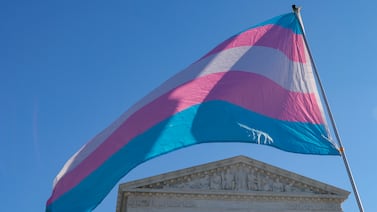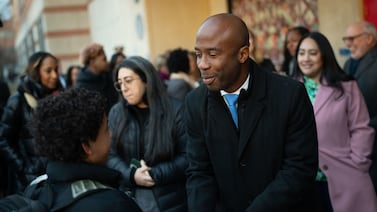Chalkbeat is a nonprofit news organization covering public education in communities across America. Sign up for our free Tennessee newsletter to keep up with state education policy and the Shelby County public school system.
After a year in which violence claimed the lives of 22 Memphis-Shelby County Schools students,, interim Superintendent Toni Williams pledged that the district would step up its efforts to fight crime.
Williams made the pledge Thursday, flanked by school board members, Shelby County District Attorney Steve Mulroy and two parents who lost children to that violence.
The district, she said, plans to play a role in tamping down youth crime through, among other things, its infrastructure plan, which looks at renovating aging schools, rather than just closing them, and expanding the role of schools as community centers.
Right now, for example, the district is on track to have nine schools that serve as community centers, she said, with some that include agriculture programs and other innovations.
In the past, she said, “we closed our schools in our blighted communities, but that isn’t what this plan is about. But the reality of that is: Could we have replaced that vacant building with housing to address some of these root cause issues?
“We have to position our schools as a pillar of our community,” she added. “We want our schools to not only represent an environment of education, but of hope.”
But the school district will need support from the broader community to be successful at preventing violence, she said.
“We must ask ourselves: ‘How can we impact the issue from our respective lanes? How can we all be crime fighters?”
Williams, whose term as interim superintendent will end this summer when a permanent leader takes over, said district officials planned to offer details in the coming weeks about how the community could work with the schools in preventing crime.
In the meantime, she called on the business and philanthropic communities to consider efforts such as adopting and volunteering at schools, as well as opening pantries at schools with food and other necessities, and offering internships and mentoring students.
Williams also asked them to prioritize long-term solutions to violence and crime that deal with housing, mental health, and other challenges.
Community violence has long been a problem that plagues youths in Memphis. The Commercial Appeal reported last month that, LeBonheur Children’s Hospital had treated 165 gunshot victims that year. It was a record number that doesn’t include children who were treated elsewhere or died before reaching the hospital.
Mulroy, the district attorney, said his office plans to aid MSCS’ efforts. It also has been examining ways to battle youth violence and crime with approaches that are less punitive.
He said he’s been talking to businesspeople about contributions for a data-sharing lab and after-school programs.
“Some of it requires locking people up, but some of it also requires intervening in their lives so that they don’t become repeat offenders,” Mulroy said.
Bureau Chief Tonyaa Weathersbee oversees Chalkbeat Tennessee’s education coverage. Reach her at tweathersbee@chalkbeat.org.






